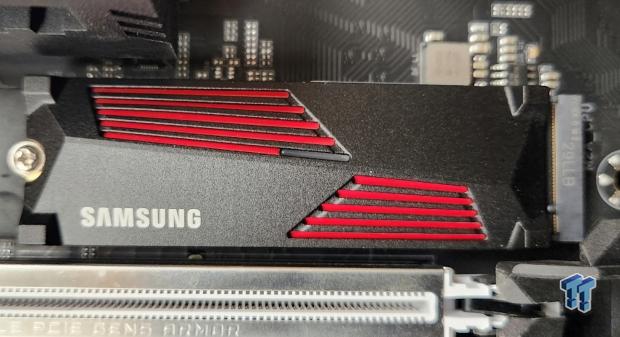
The Bottom Line
Pros
- + Gaming
- + Sequential throughput
- + Temperatures
- + Consumer workloads
- + PlayStation 5 compatible
Cons
- - None
Should you buy it?
AvoidConsiderShortlistBuyIntroduction & Drive Details
It's time to take another look at the best Gen4 SSD ever made, Samsung's 990 PRO 2TB. The 990 PRO has been out for close to a year now, and to date, no PCIe Gen4 SSD has even come close to challenging it as the PCIe Gen4 consumer storage performance leader. When we first got our hands on the 990 PRO back in October of last year, we were so impressed with the drive that we called what it was dishing out - performance on higher level.
Enabling the drive's superior performance is Samsung's superfast 7th generation 512Gbit, 2,000MT V-NAND. To this day, almost a year later, it remains the second highest speed flash ever to array a retail consumer SSD, only exceeded by 2,400MT YMTC flash. Truly flash is the main factor related to SSD performance in the consumer space; the controller is a distant second.
What are we doing with another Samsung 990 PRO 2TB on the bench? There are a couple of reasons we feel the need to revisit the best PCIe Gen4 has to offer. First off, and the primary reason for us taking another look, is this version of the 990 PRO is the heatsink model. The attractive, optionally lit LED heatsink is specifically designed with PlayStation 5 M.2 storage expansion in mind. Secondarily, significant firmware updates have been rolled out since we last played with the drive. We are curious how much performance has been affected, or even at all.
Now, it's not like the 990 PRO was ever a hot running drive, Samsung SSDs generally run cool in comparison with similar competitor products, but even so, the cooler is better, especially when slated for PS5 storage expansion. With this in mind, we will see how hot we can get the drive on an open test bench with no airflow.
Okay, now let's see if the best got even better.
Drive Details
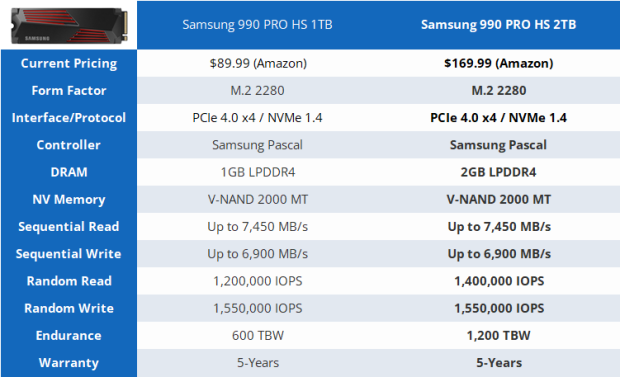
Excellent price points as we see it, as the 990 PRO is priced right in there with many lesser-performing SSDs. Now, let's check the heat:
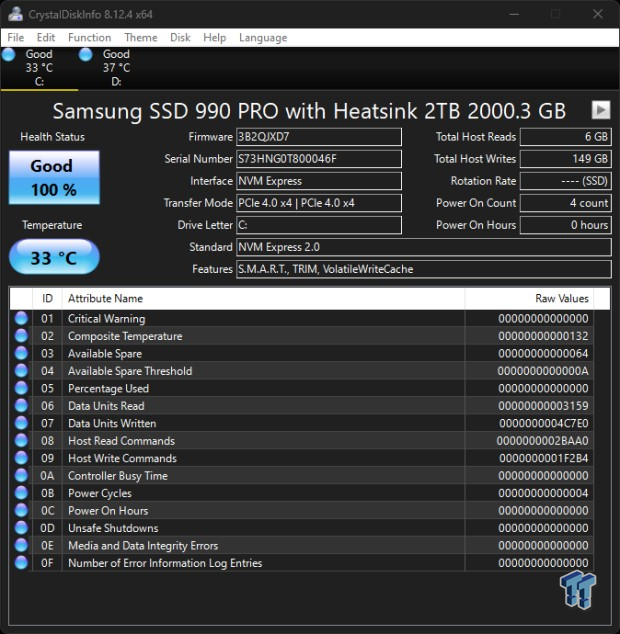
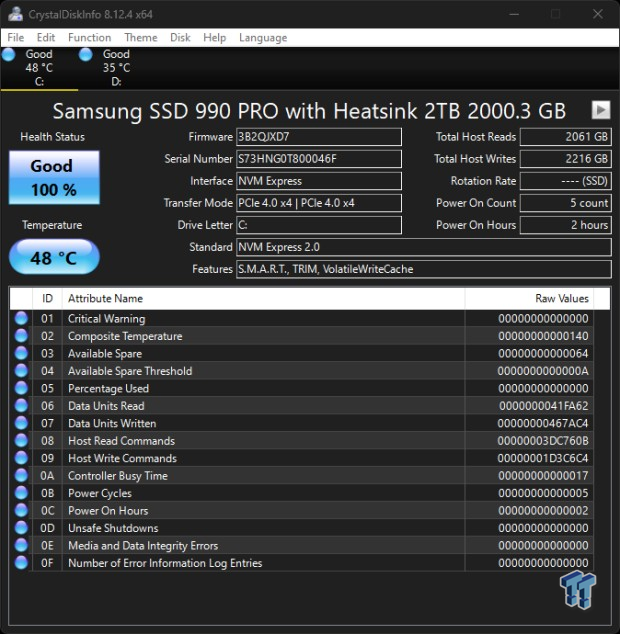
The idle temp is a cool 33c. Excellent. While blasting the drive with sustained sequential writes, with full power mode enabled via Samsung Magician, 48c was the highest temp we encountered. Also excellent. This drive offers exceptional thermal performance, exactly what we want to see, especially when the drive is PS5 compatible.
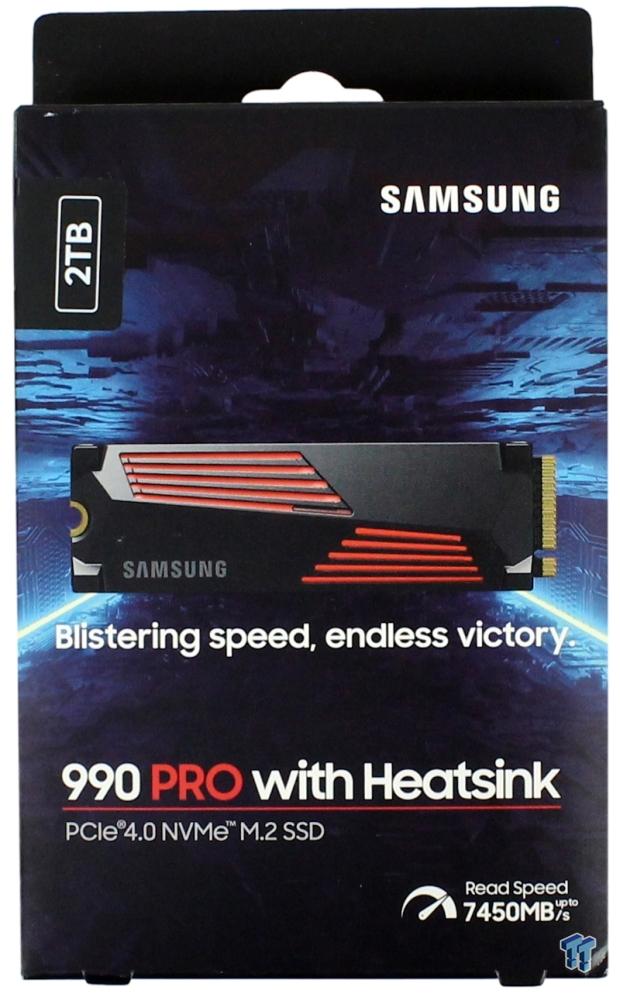
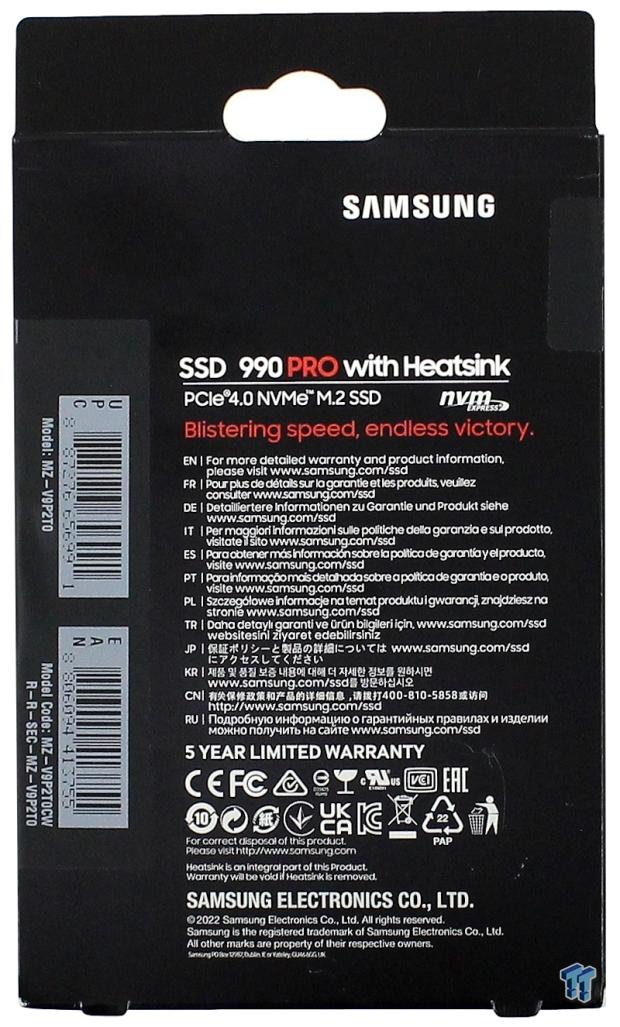


As always, when you buy a Samsung SSD, you get free supporting software that makes maintenance and system migration simple and free. Click here to download it.
Jon's Test System Specifications
Intel Test System
- Motherboard: GIGABYTE Z790 AORUS Tachyon
- CPU: Intel Core i9-13900KS - Buy from Amazon
- Cooler: Alphacool Eissturm Hurricane Copper 45 - Buy from Amazon
- RAM: Sabrent Rocket DDR5 32GB - Buy from Amazon
- Graphics Card: MSI SUPRIM X RTX 3080 12GB - Buy from Amazon
- Case: PrimoChill's Praxis Wetbench - Buy from Amazon
- Power Supply: be quiet! Dark Power Pro 12 1200W - Buy from Amazon
- OS: Microsoft Windows 11 Pro 64-bit - Buy from Amazon
AMD Test System
- Motherboard: GIGABYTE B650E AORUS Tachyon
- CPU: AMD Ryzen 9 7950X - Buy from Amazon
- Cooler: Alphacool Eissturm Hurricane Copper 45 - Buy from Amazon
- RAM: Sabrent Rocket DDR5 32GB - Buy from Amazon
- Graphics Card: MSI SUPRIM X RTX 3080 12GB - Buy from Amazon
- Case: PrimoChill's Praxis Wetbench - Buy from Amazon
- Power Supply: be quiet! Dark Power Pro 12 1200W - Buy from Amazon
- OS: Microsoft Windows 11 Pro 64-bit - Buy from Amazon
Because we at TweakTown like to be first at everything whenever we can, we will present our storage performance results for the test subject on both 13th Gen Intel and 7000 Series AMD platforms going forward for the foreseeable future. Because Intel still delivers the best real-world storage performance, (Look Here), our running chart will continue to be Intel-based until AMD can deliver better real-world storage performance than its rival.

Samsung 990 PRO HS 2TB NVMe PCIe Gen4 x4 M.2 SSD
Sony PlayStation 5 - M.2 Storage Expansion
PS5 Read Performance
With Sony's wildly popular PlayStation 5 console now enabled for M.2 NVMe SSDs to be used as fast storage expansion, we include results for PS5 compatible SSDs we test as a part of our reviews going forward.
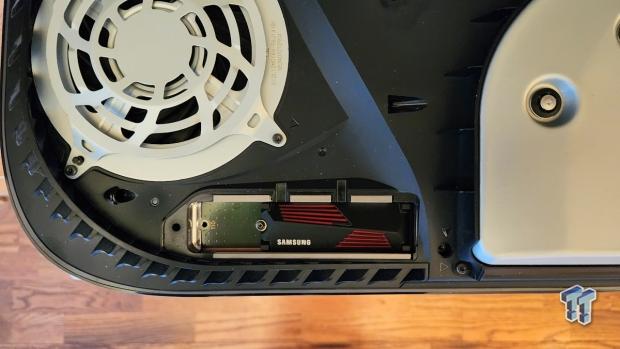
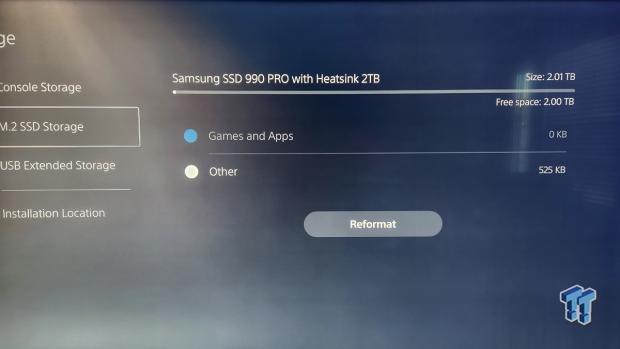
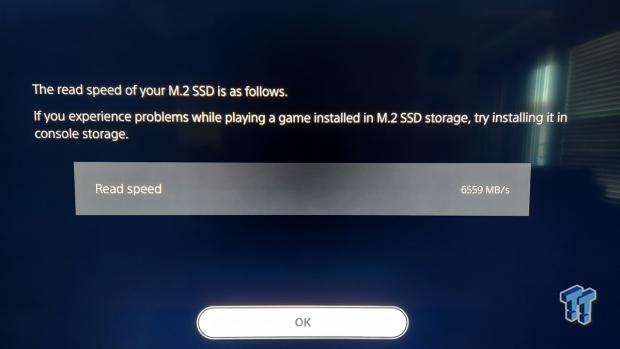
We only chart SSDs that can deliver a minimum of 5,500 MB/s read, which is Sony's original recommendation.
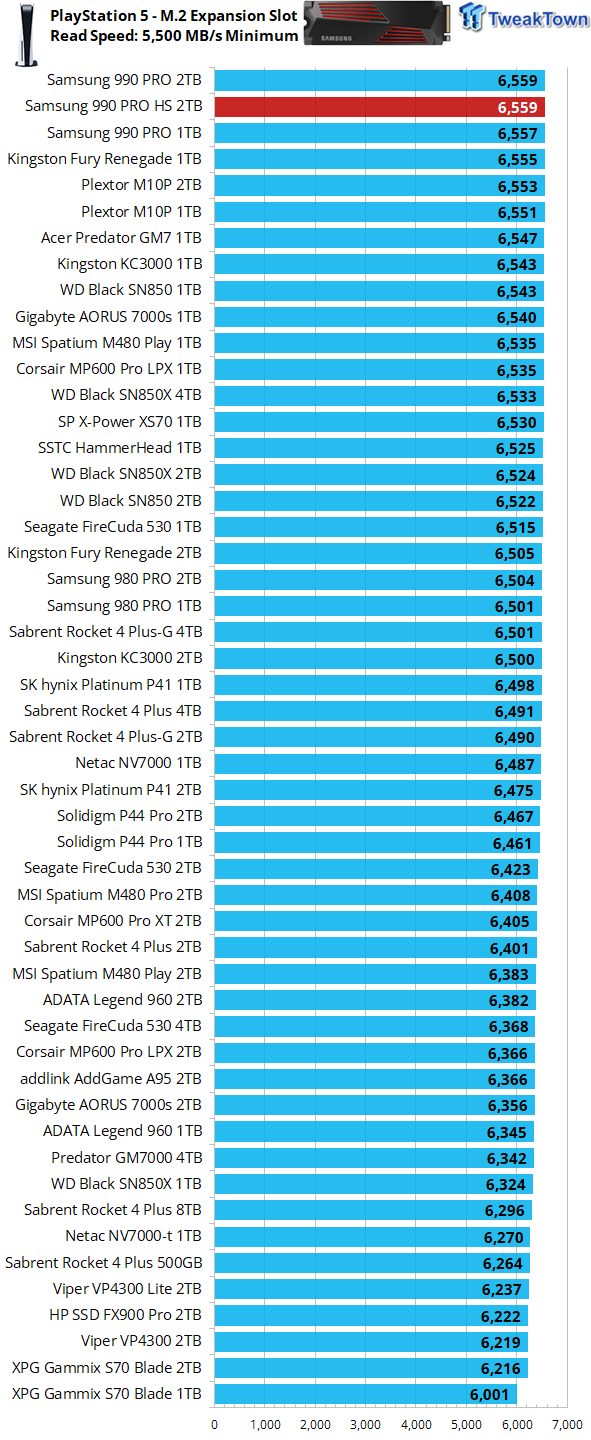
At 6,559 MB/s, our test subject matches exactly what we got from the non-heatsink model. Lab record.
Synthetic Benchmarks: CDM, Anvil, ATTO
CrystalDiskMark
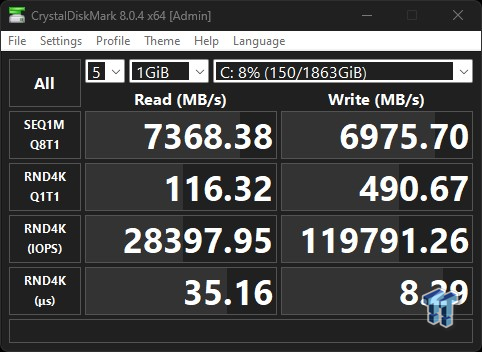
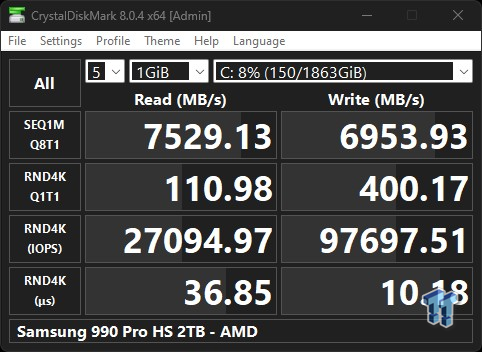
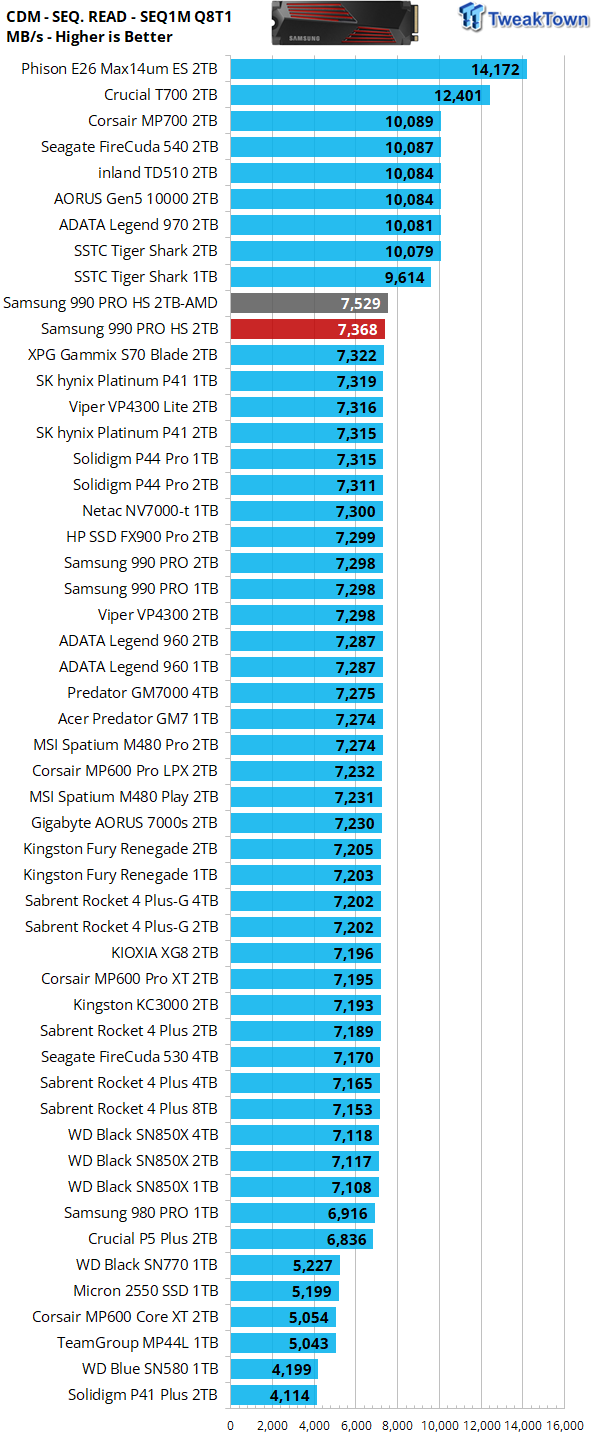
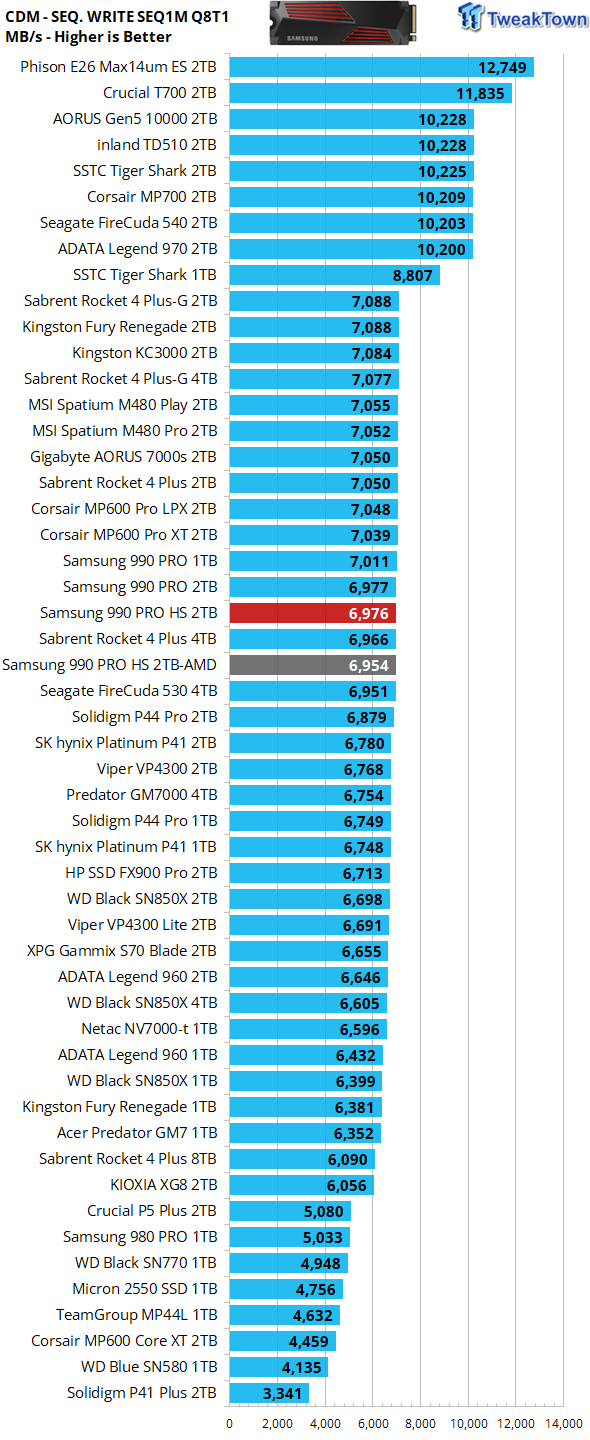
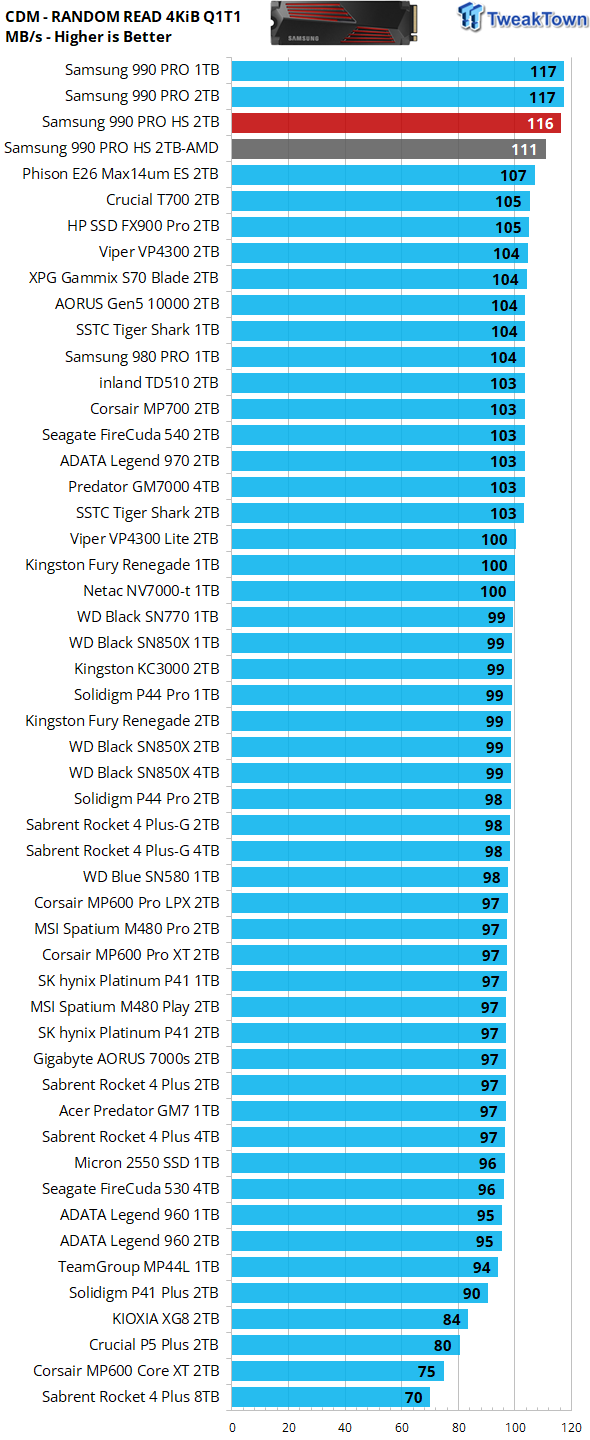
We employ CDM as our standard measurement for both sequential throughput and Q1T1 random read. In terms of sequential throughput, we find our test subject fully capable of meeting and exceeding quoted up to specifications (which are given for AMD). 7,529 MB/s is the highest sequential throughput we've ever seen from any PCIe Gen4 SSD. Additionally, looking at the number that typically matters most in terms of real-world performance, 4K QD1 random read, our test subject is delivering 99.99% of what we got from the original 990 PRO.
Anvil's Storage Utilities
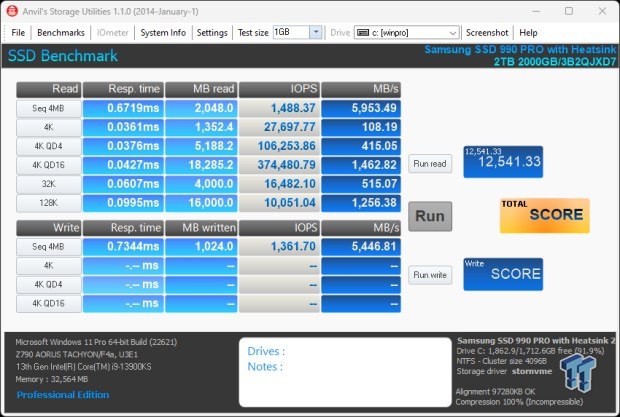
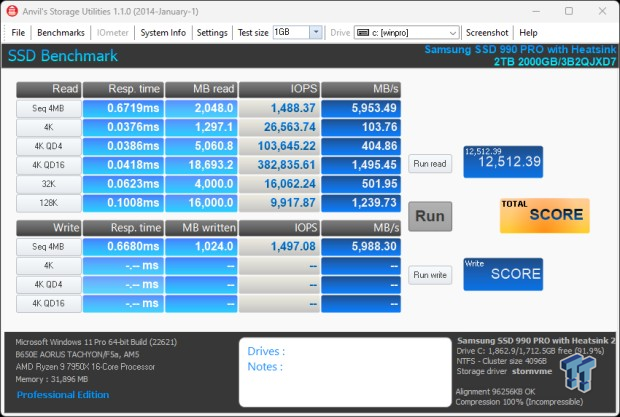
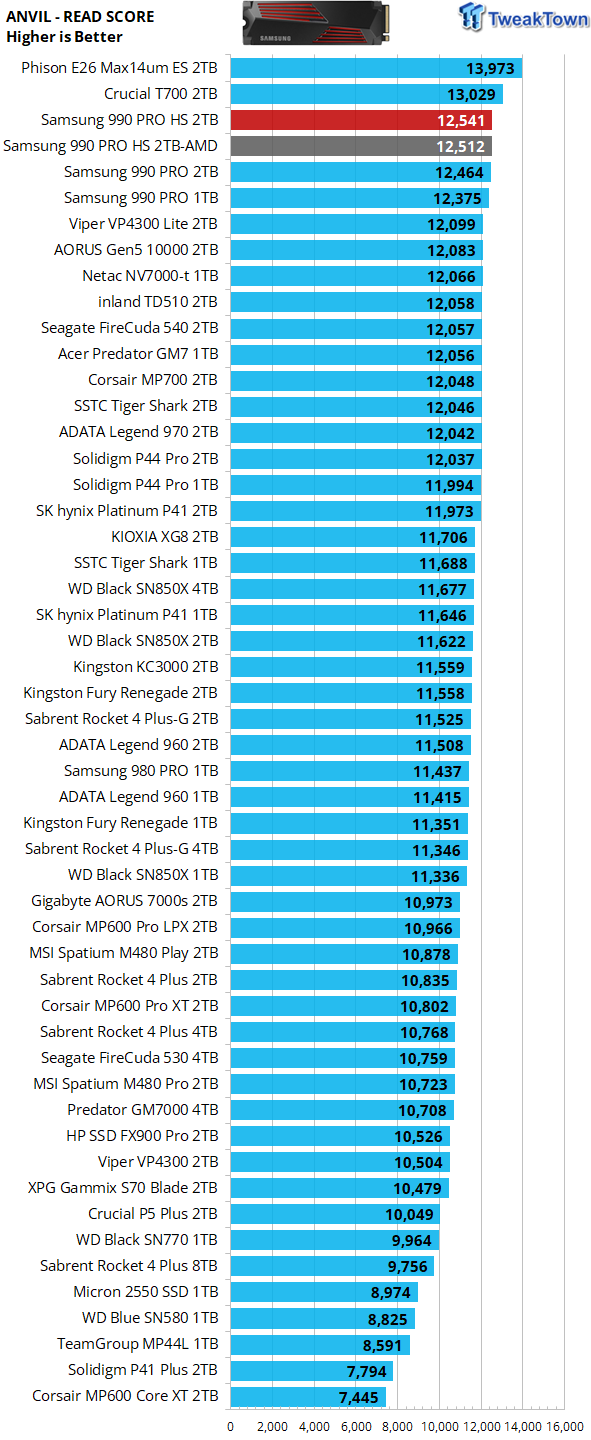
This time our test subject gets the better of the launch day 990 PRO, setting a new lab record for a flash-based PCIe Gen4 SSD in the process. Impressive.
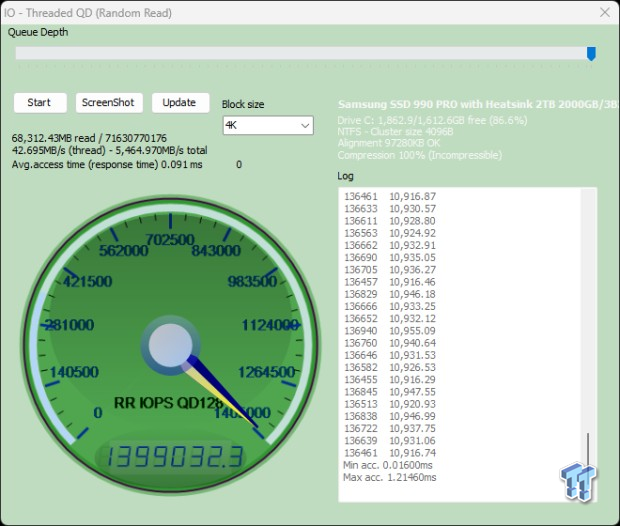
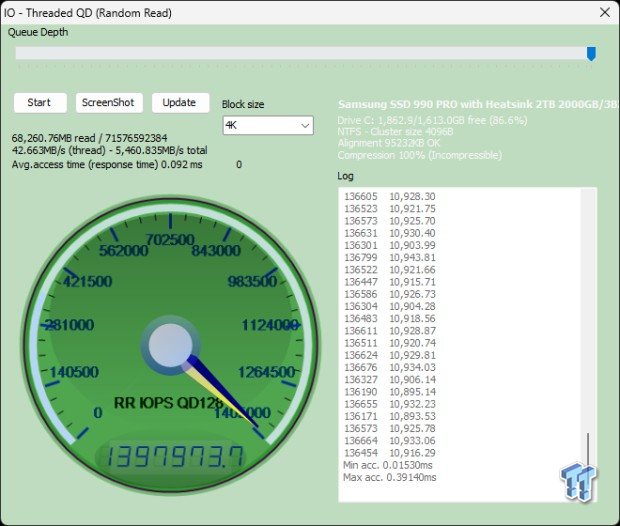
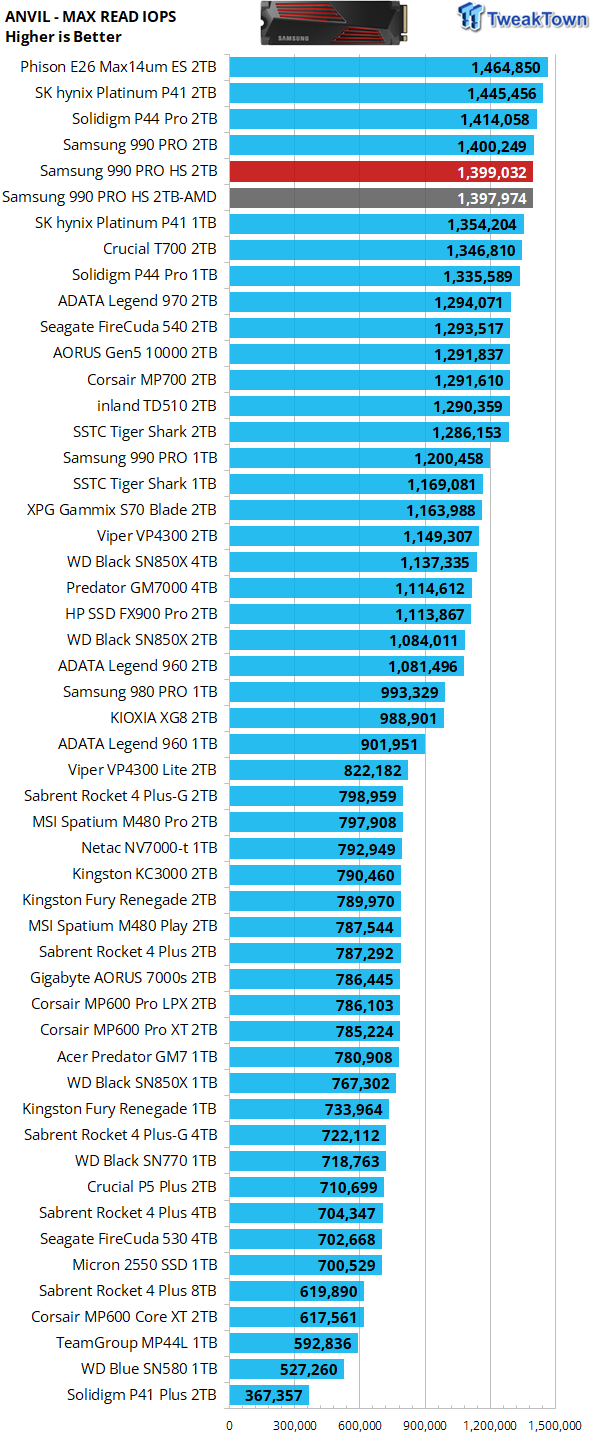
We employ Anvil's random read test as our standard for measuring max random read IOPS. This test is very accurate as it at its core is Iometer skinned over. We test at QD128. We are getting right at the factory up to spec of 1.4 million IOPS here, again impressive.
ATTO
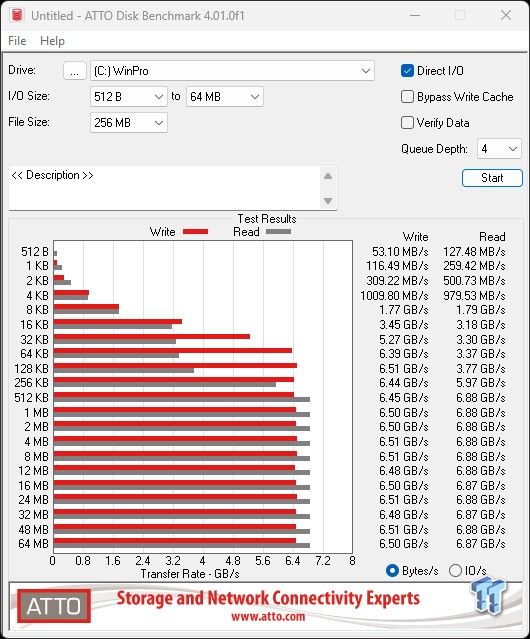
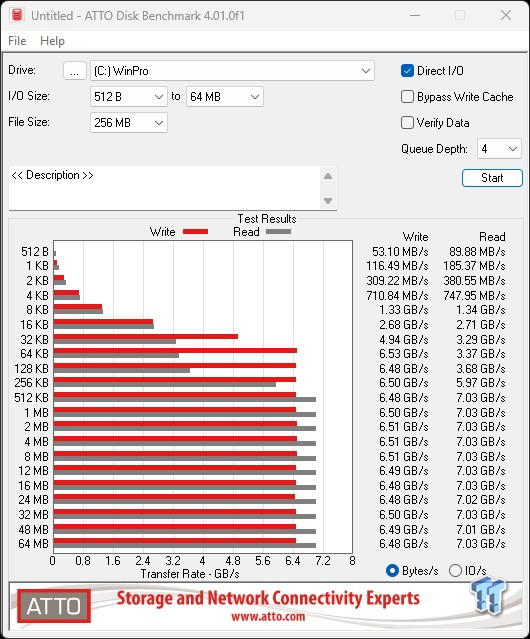
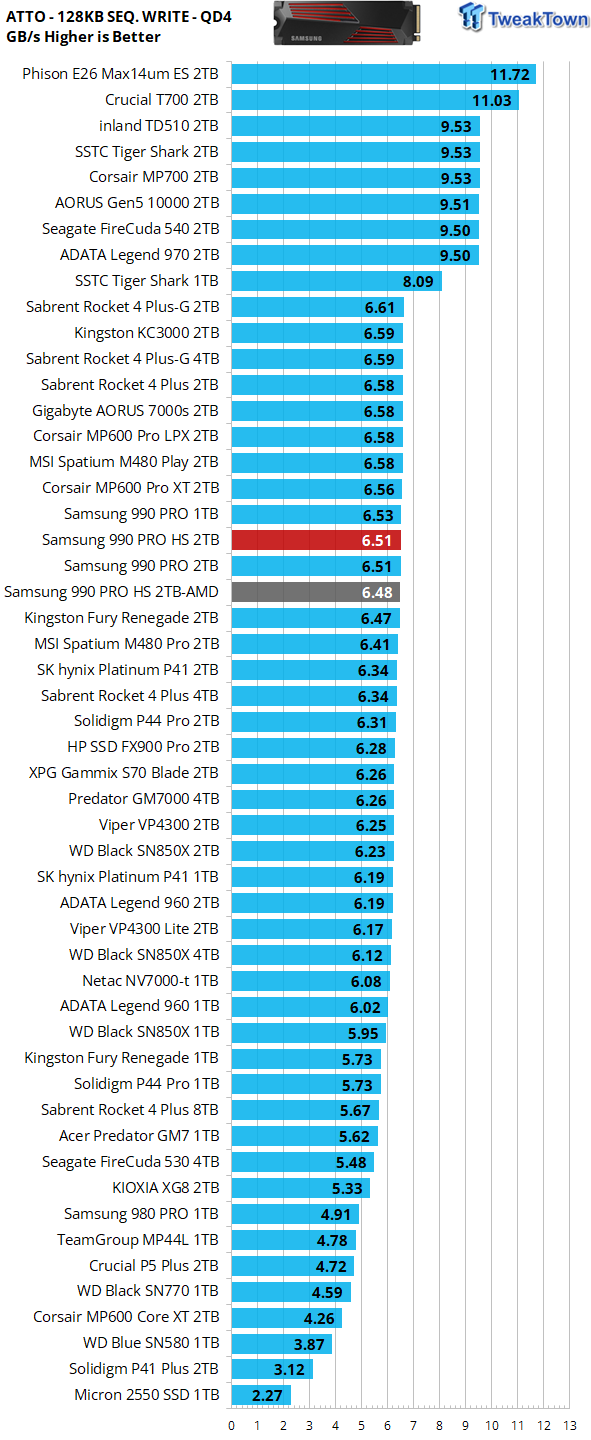
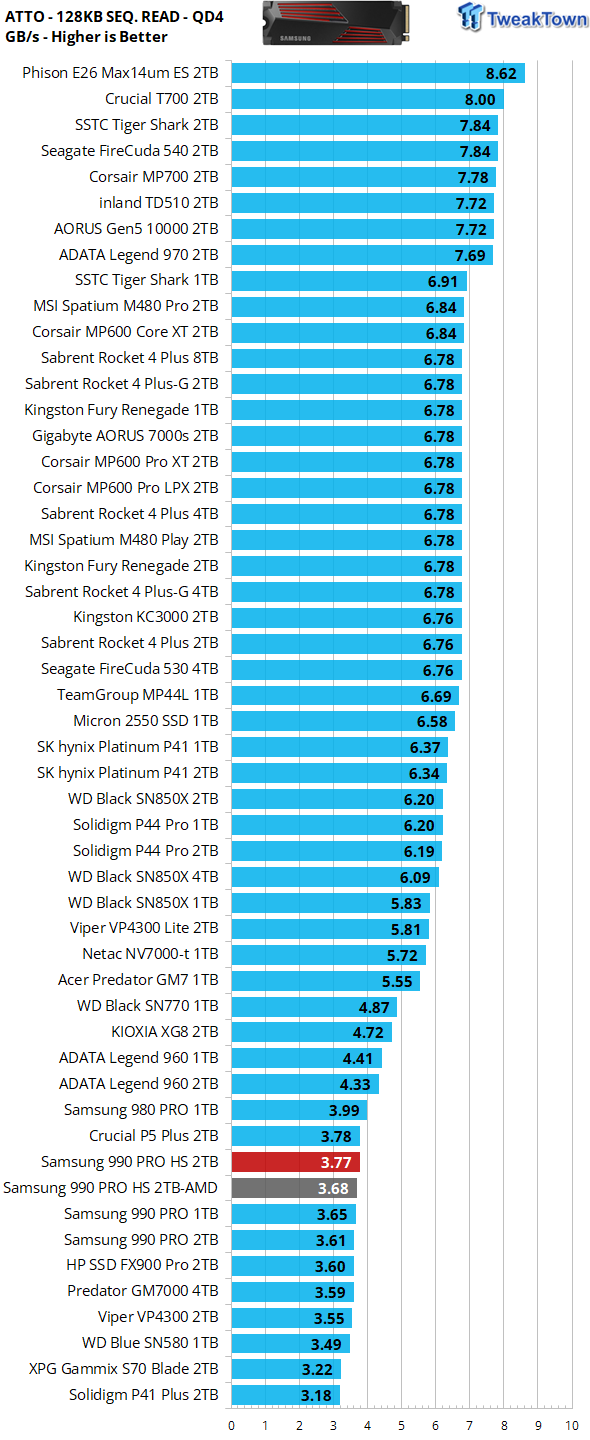
ATTO gives us a clear picture of what transfer sizes a particular SSD favors in terms of sequential throughput. We chart 128K transfers. As expected, our test subject favors sequential transfers of 512K or larger when serving data to the host (reading) and 64K or larger when programming (writing) data.
Real-World Testing: Transfers, 3DMark SSD Gaming Test, PCM10 Storage
Transfer Rates
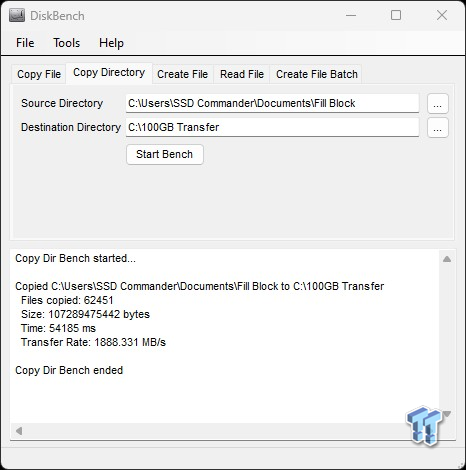
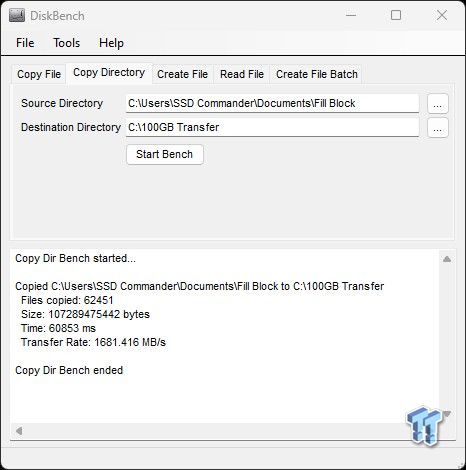
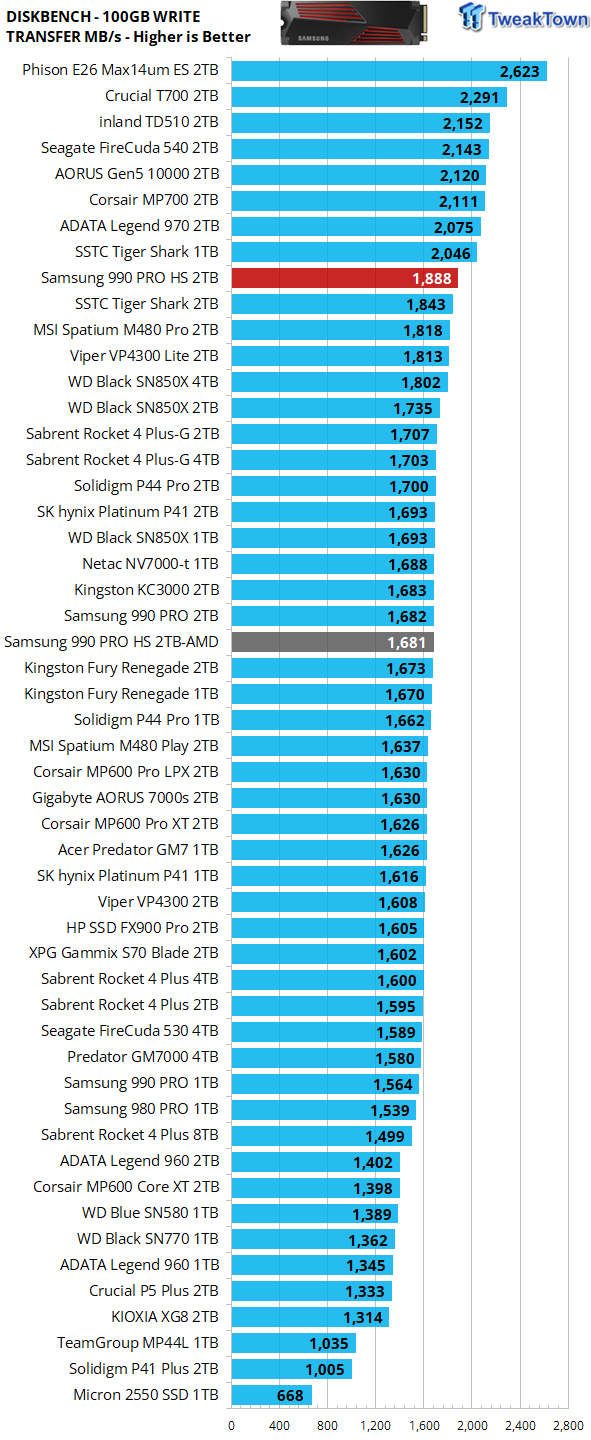
Our 100GB data transfer test is not your ordinary 100GB of data. Ours is a crushing mix composed of more than 62K files. Write performance random or sequential, is an infrequent operation, and as such, we do not consider it to be an important performance metric in the consumer space. An example being how many times is a game installed vs. how many times it's played. Although it's not an important metric in the real-world, we are nonetheless impressed with this new lab record for a flash-based PCIe Gen4 SSD.
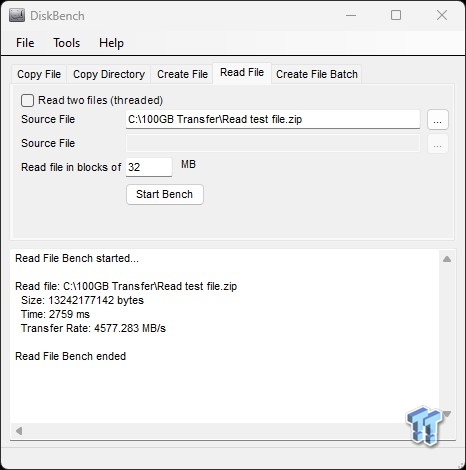
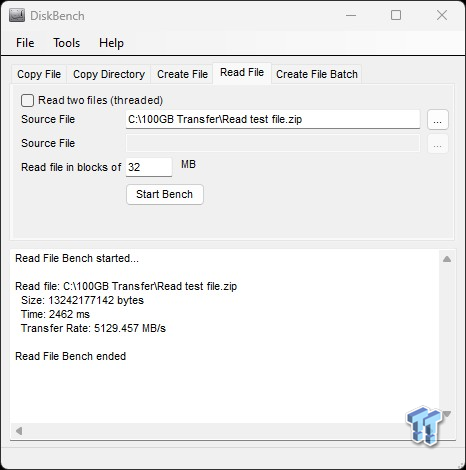
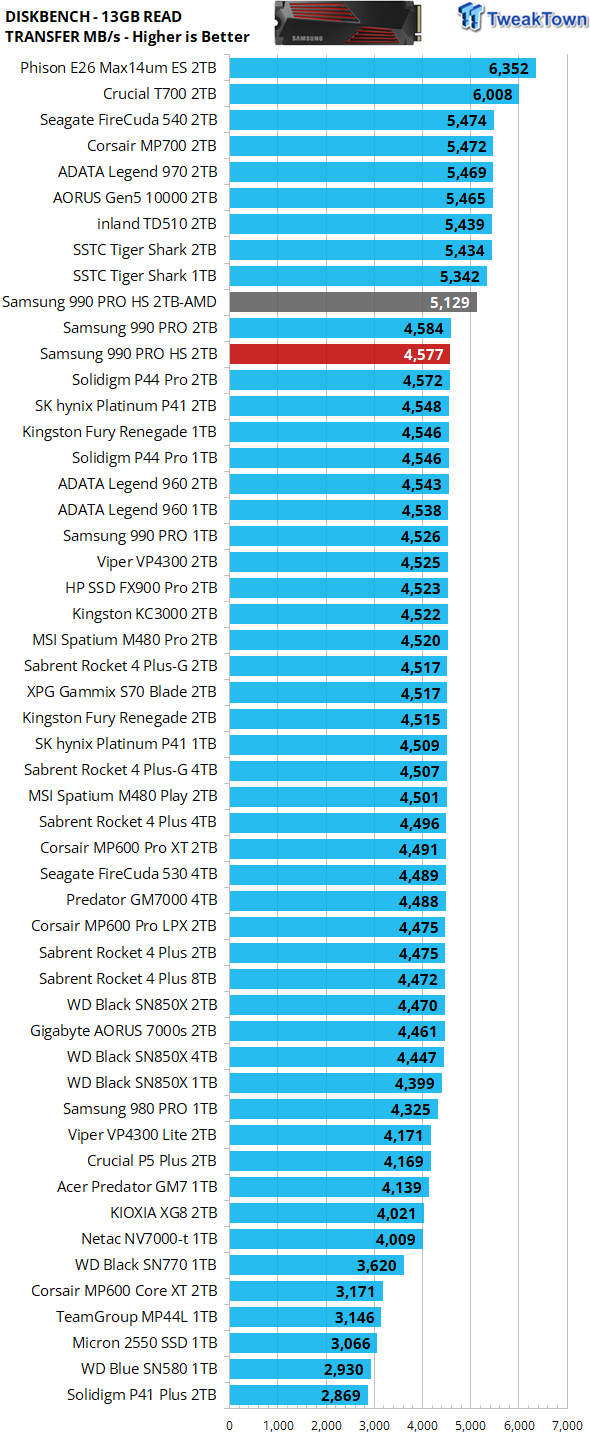
Unlike programming (writing) data, serving data to the host (reading) data is always an important performance metric as it relates to the consumer space. Second best ever for a PCIe Gen4 SSD, only exceeded by the launch day model.
3DMark SSD Gaming Test
UL's newest 3DMark SSD Gaming Test is the most comprehensive SSD gaming test ever devised. We consider it superior to testing against games themselves because, as a trace, it is much more consistent than variations that will occur between runs on the actual game itself. This test is in fact the same as running the actual game, just without the inconsistencies inherent to application testing. In short, we believe that this is the world's best way to test an SSDs gaming prowess and accurately compare it against competing SSDs. The 3DMark SSD Gaming Test measures and scores the following:
- Loading Battlefield V from launch to the main menu.
- Loading Call of Duty Black Ops 4 from launch to the main menu.
- Loading Overwatch from launch to the main menu.
- Recording a 1080p gameplay video at 60 FPS with OBS (Open Broadcaster Software) while playing Overwatch.
- Installing The Outer Worlds from the Epic Games Launcher.
- Saving game progress in The Outer Worlds.
- Copying the Steam folder for Counter-Strike Global Offensive from an external SSD to the system drive.
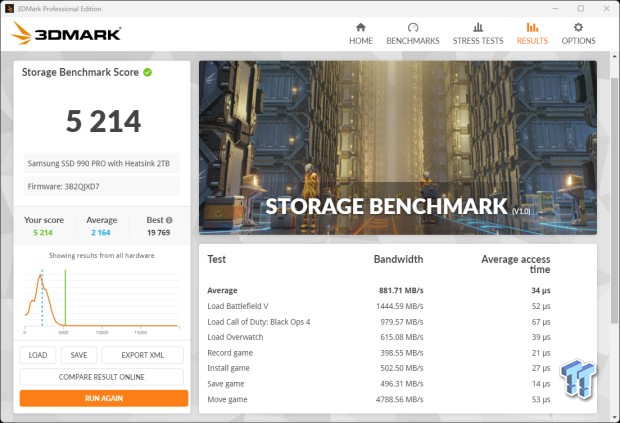
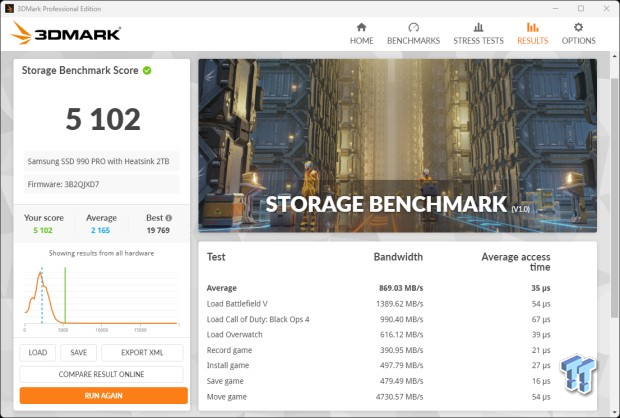
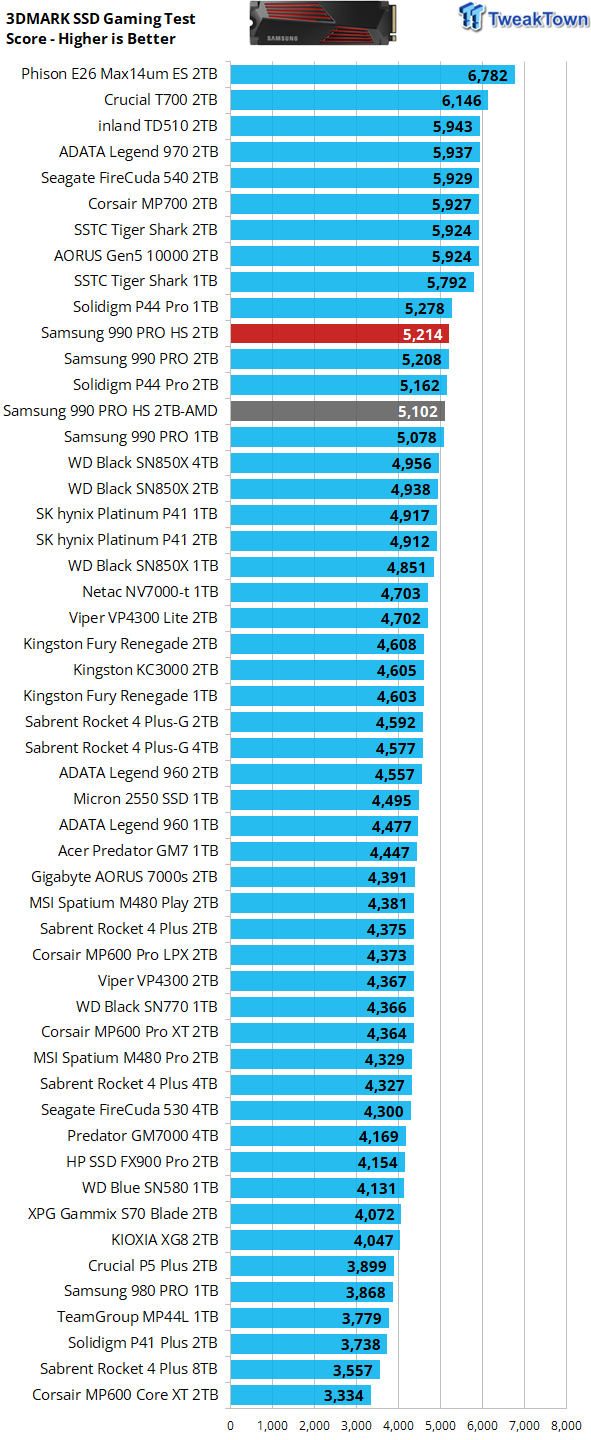
Gaming is a performance metric that matters to the majority of DIY consumers, especially to the enthusiast crowd that TweakTown caters to. Now we've reached the point where results start to matter as they are a direct reflection of user experience. A score of 5,200 here has only ever been attained by two flash-based PCIe Gen4 SSDs in history, the 990 PRO 2TB being one of the two.
PCM10 Storage Tests
PCMark 10 Storage Test is the most advanced and most accurate real-world consumer storage test ever made. There are four different tests you can choose from; we run two of them. The Full System Drive Benchmark and the Quick System Drive Benchmark. The Full System Drive Benchmark writes 204 GB of data over the duration of the test. These tests directly correlate with mainstream user experience.
PCMark 10 Full System Drive Benchmark
This particular test writes 204GB data and covers a broad range of common consumer tasks, including booting Windows 10, file transfers, Adobe and Office applications, and startup times for games, including Battlefield V, COD Black Ops 4, and Overwatch. Unlike synthetic numbers, this is comprehensive real-world data which is why we use it to rank SSDs in terms of user experience.
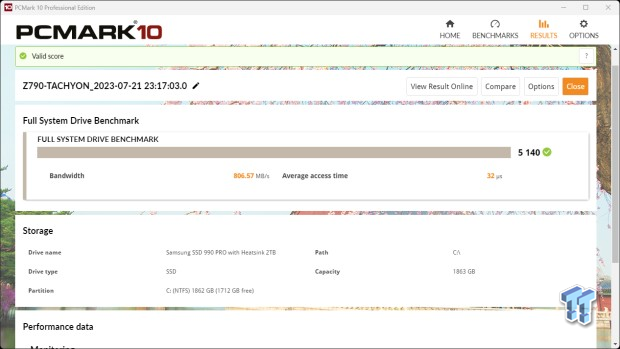
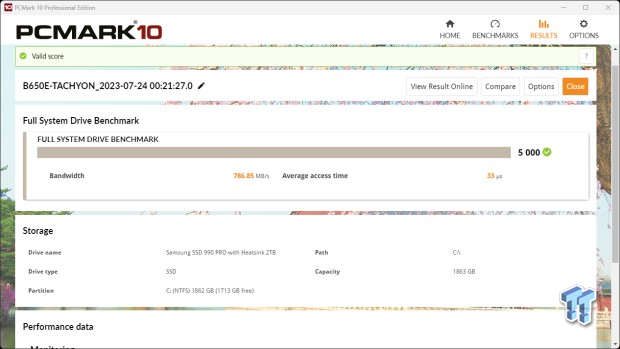
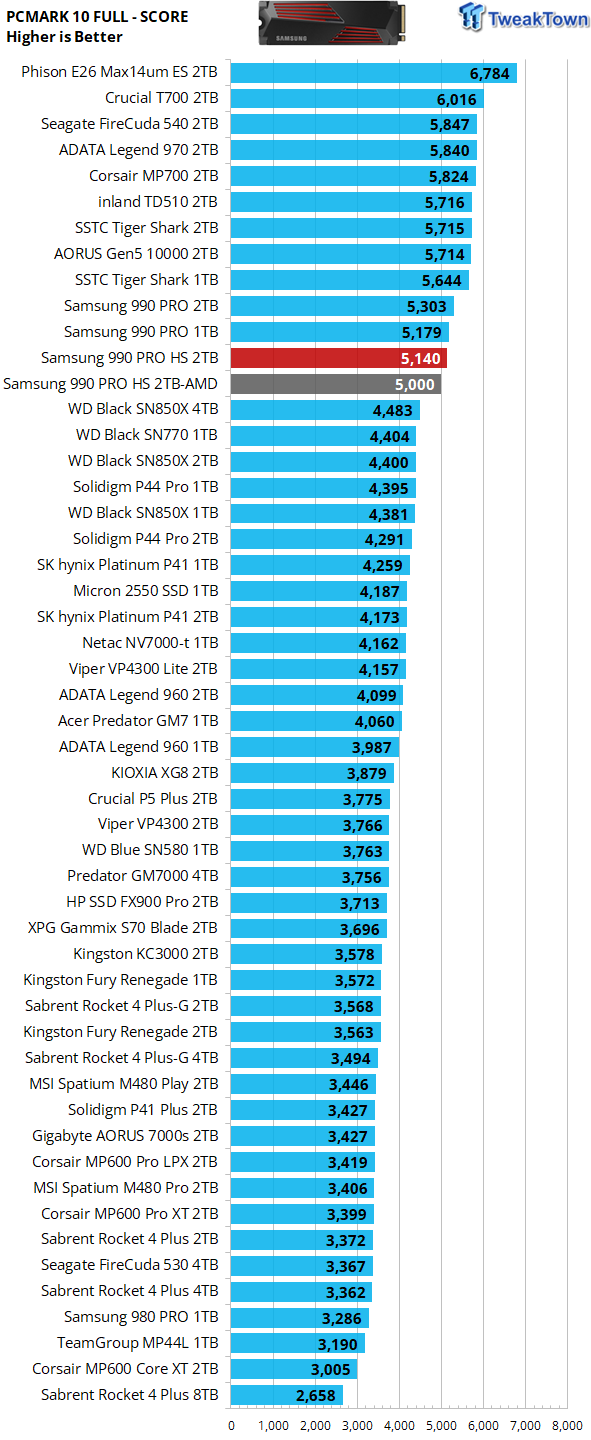
Results here again remind us that Samsung's 990 PRO is without question the highest-performing SSD of its kind ever made. Wow.
PCMark 10 Quick System Drive Benchmark
The Quick System Drive Benchmark writes 23 GB of data over the duration of the test.
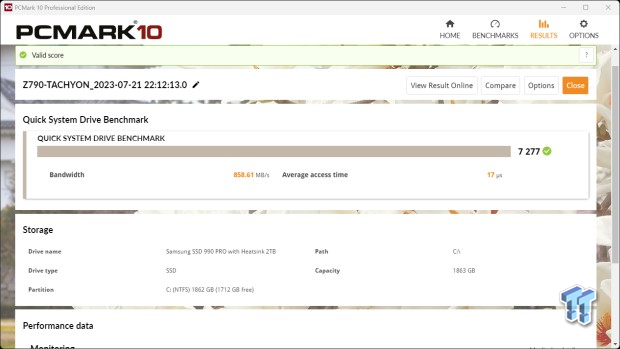
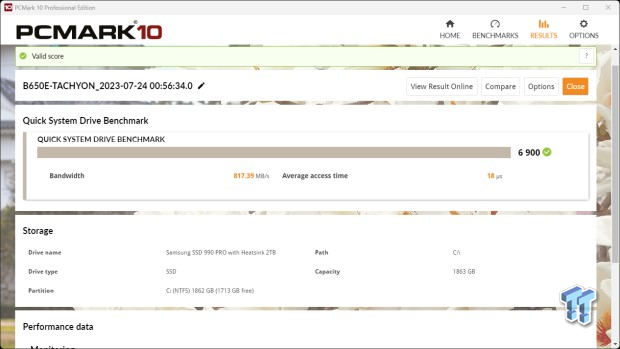
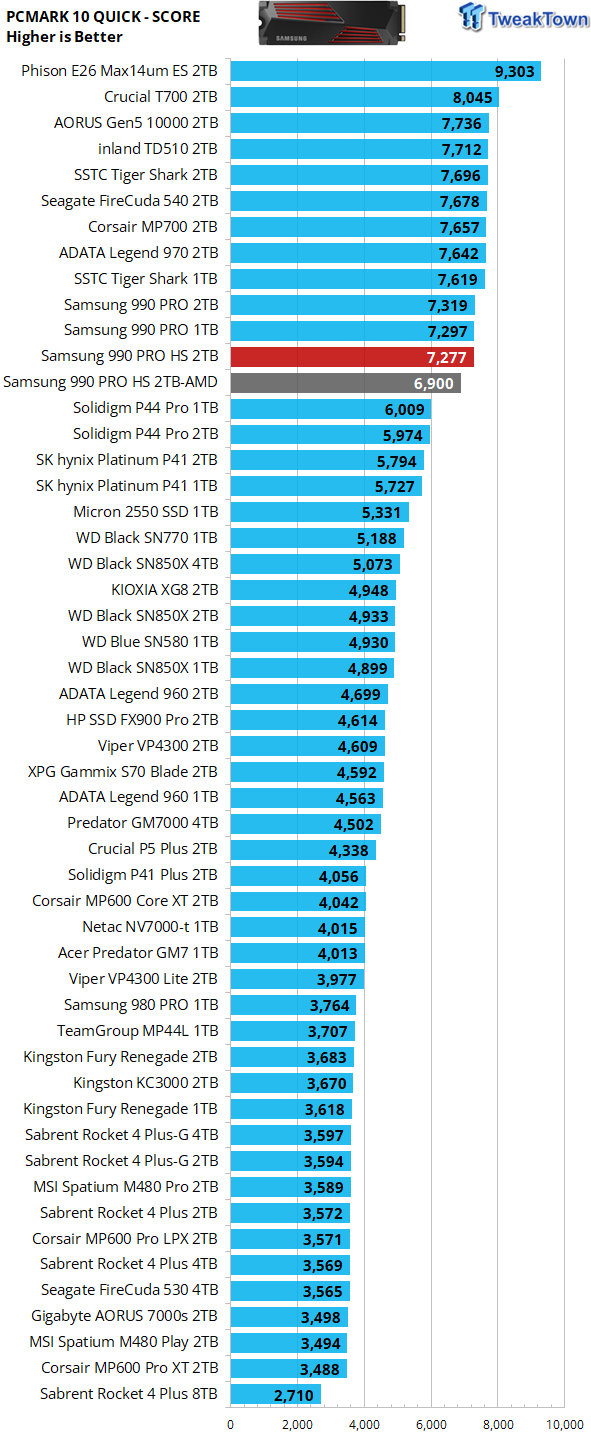
Complete domination here as well. This time our test subject demonstrates that it is a whopping 21% more performant than the next closest PCIe Gen4 contender. Stunning.
Final Thoughts
So did the best get even better? We are of the considered opinion that it did. Temps that cool with performance that high is something we've not experienced before. Additionally, the heatsink model is easily the best choice going for PlayStation 5 storage expansion. Add into that all the free Samsung software bells and whistles, and we have a big-time winner right here.
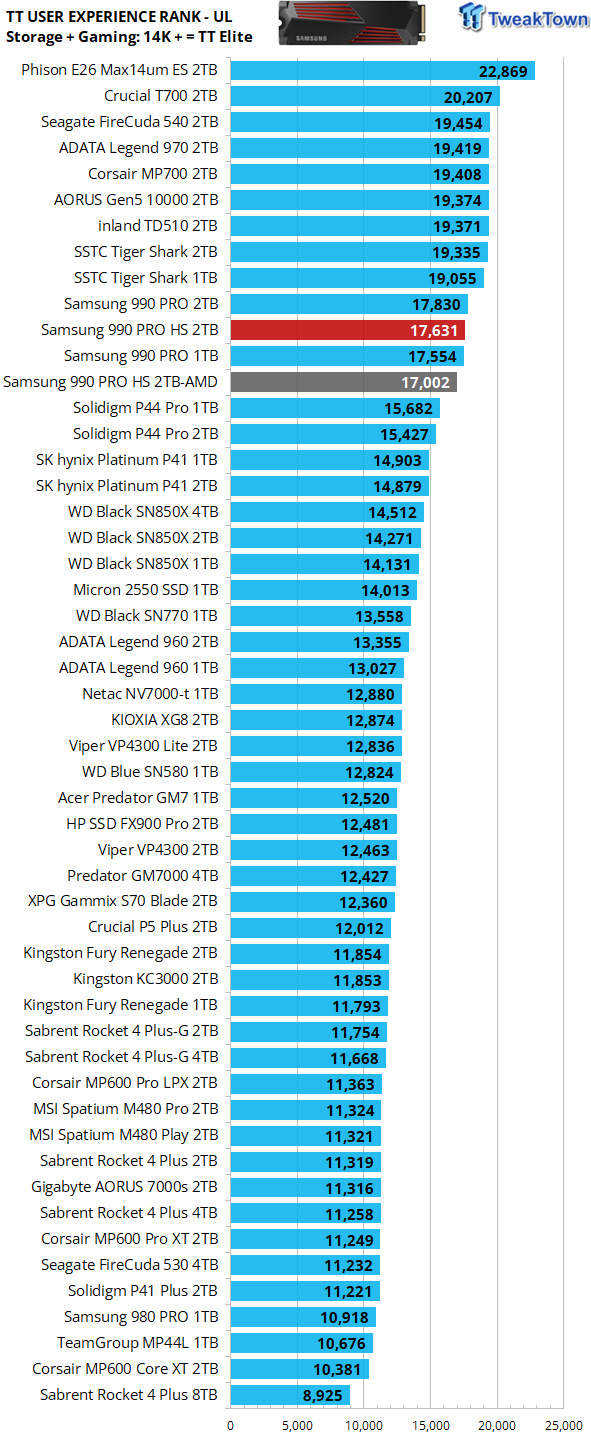
We rank SSDs in terms of overall user experience (performance where it matters most) as expressed by PCMark 10 storage and 3DMark gaming storage tests. We consider a user experience score of 14K or more to verify an SSD as a TweakTown Elite performer. Still the undisputed champion of PCIe Gen4 and imminently TweakTown Elite.
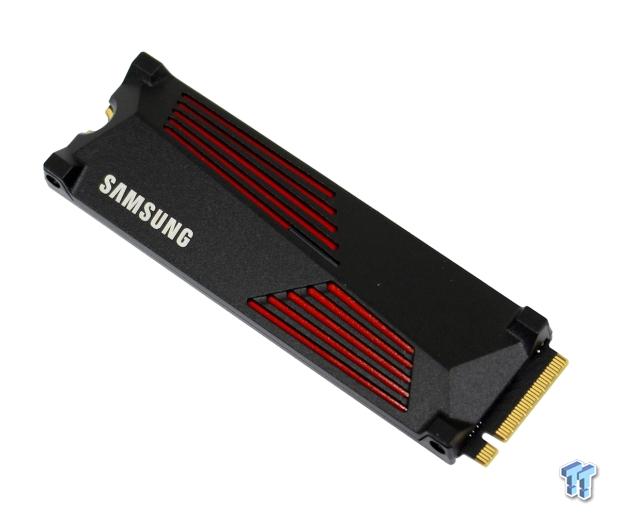
Samsung's 990 Pro with heatsink is overall the best PCIe Gen4 SSD ever made. Editor's Choice.

